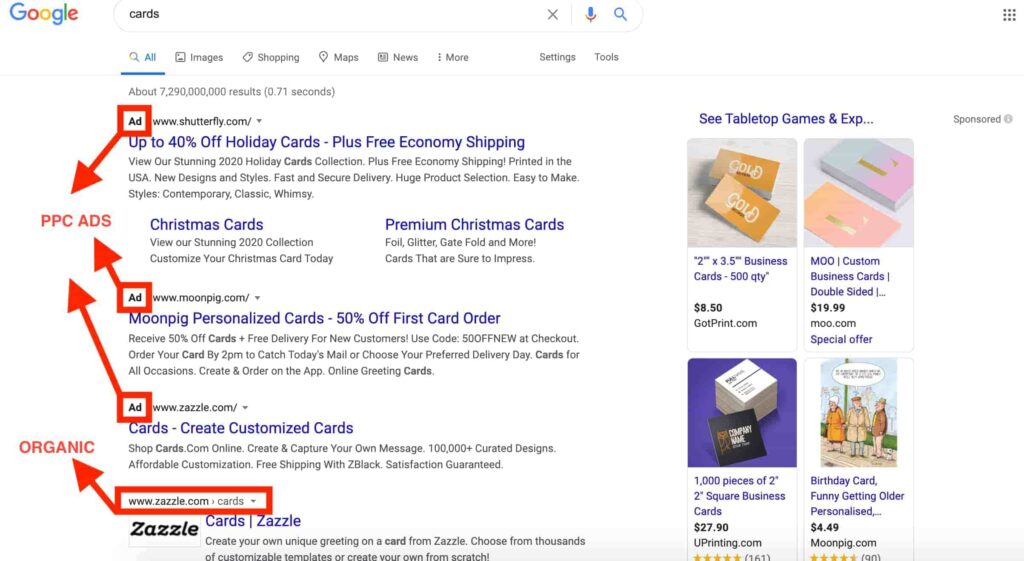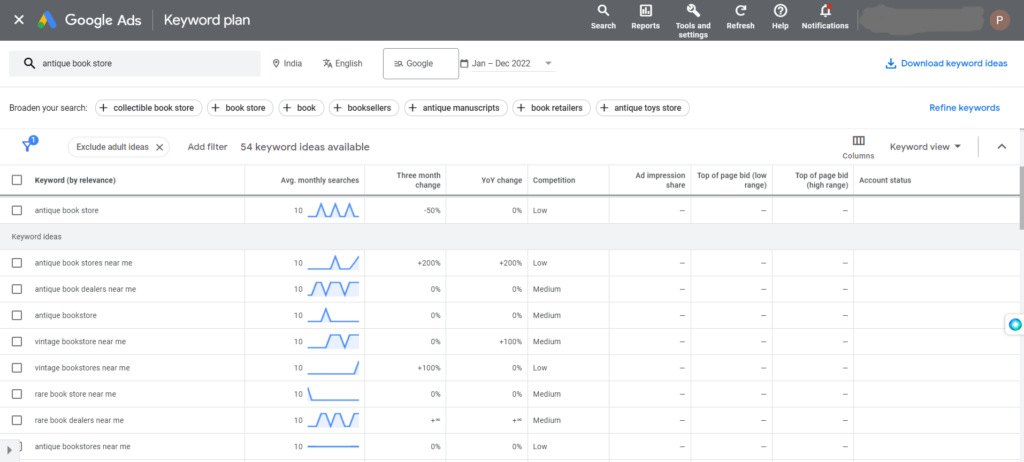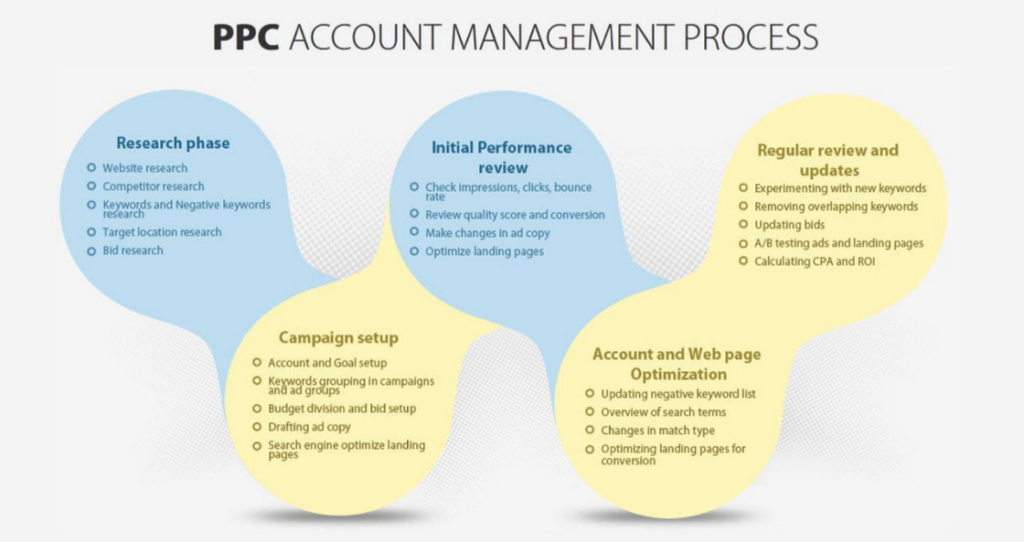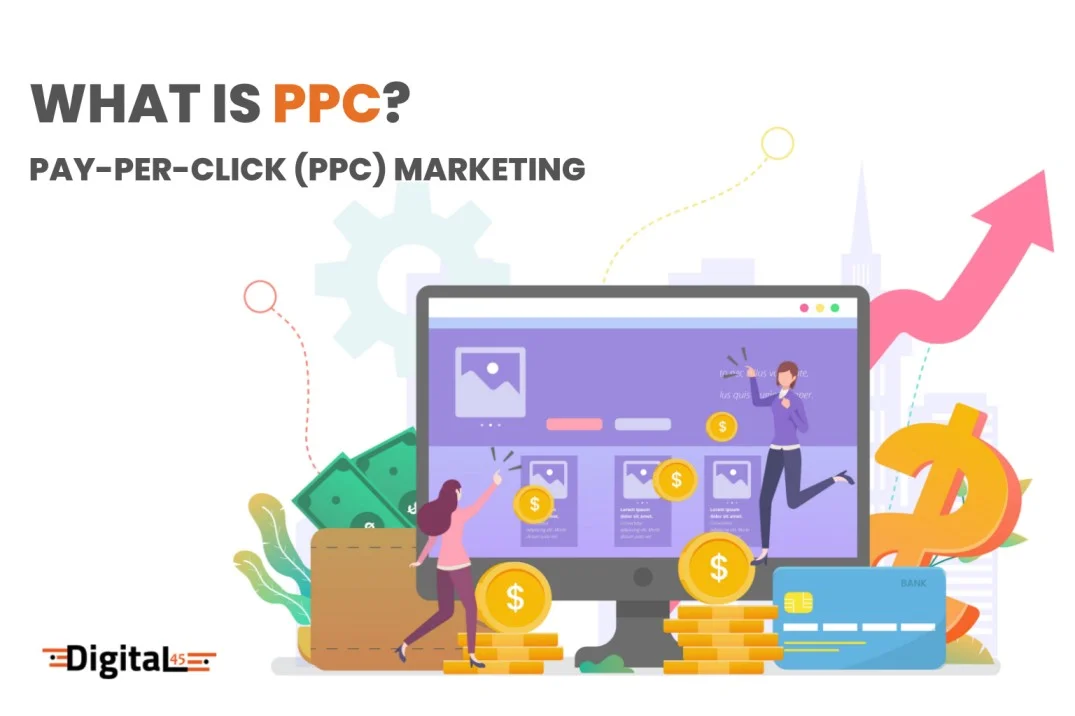When you’re launching a new business, it can be hard to get traction. Even if you have a great product and service, it can be difficult to stand out from the crowd.
One of the best ways to ensure that your company gets seen by potential customers is through pay-per-click (PPC) advertising—that is, buying ads on Google or another search engine.
Pay-per-click advertising is an incredibly effective way to generate leads and sales for your small business. In this guide, we’ll explain how PPC works by hiring the PPC Expert Company and give you tips on getting started with this strategy as soon as possible.
How Does PPC Advertising Work?
PPC advertising is a type of pay-per-click (PPC) marketing that allows you to show your ads on search engines.
In this type of advertising model, advertisers bid for keywords relevant to their business or product(s).
The advertiser’s bid determines where their ad will appear in relation to other advertisers’ ads with similar bids–in other words, if two advertisers bid $1 and $2, respectively, for the same keyword phrase and are competing with each other for placement in the same position on a search engine results page (SERP), then whichever one pays more money will appear higher up on that SERP than his rival.
What is Google Ads?
Google Ads is a program that allows businesses to advertise on Google and its partner sites. It provides advertisers with a variety of advertising options, including text ads, image ads, and video ads.

Google Ads is one of the popular and effective ways to advertise online because it’s easy to use yet still provides powerful targeting capabilities for advertisers who want to hone in on their ideal audience–whether it be based on location or demographic information. Google Ads can be used by both small and large businesses, but it’s important to note that Google Ads is not free.
You’ll need to pay for the amount of traffic generated by your ads. However, it’s important to note that Google Ads offers a wide variety of options for advertisers looking for different types of advertising campaigns.
How PPC works in Google Ads
Google Ads is the most popular PPC platform, but it’s not the only one. In fact, there are several major players in this field: Facebook Ads and LinkedIn Ads are two others that come to mind immediately.
PPC stands for “pay per click.” This means you pay a fee every time someone clicks on your ad (or views it). The amount you pay depends on how much you bid for an ad impression–the more money you’re prepared to spend, the higher up on search results pages your ads will appear and thusly get more clicks.
Paid search advertising is a highly effective way of getting your message in front of potential customers. It’s also one of the most cost-effective forms of marketing available today.
How to do PPC with Google Ads?
Google Ads is a pay-per-click (PPC) advertising platform that allows you to target users based on their search history, location and other factors. It’s the most popular PPC platform, and it has a great interface that makes it easy to create ads. The best part?
You don’t need any coding experience or technical expertise to get started with Google Ads!
It’s a great way to get your business in front of potential customers and generate leads. If you have a website, you should be using Google Ads! Here’s what you need to know about Google Ads:
- Google Ads is a pay-per-click advertising platform that allows you to target users based on their search history, location and other factors.
- It’s the most popular PPC platform, and it has a great interface that makes it easy to create ads. The best part? You don’t need any coding experience or technical expertise to get started with Google Ads!
- It’s a great way to get your business in front of potential customers and generate leads. If you have a website, you should be using Google Ads!
PPC keyword research
Keyword research is an important part of PPC marketing. Keywords are the words and phrases that people search for on Google, so if you can find the right ones, you’ll have a better chance of getting your ads in front of people who are looking for what you have to offer.
To do keyword research:
- Find keywords that are relevant to your business and check out what advertisers are bidding on those terms in AdWords (Google’s advertising platform). Here’s how:

- Go to Keyword Planner (google.com/ads/keywordplanner) and enter some descriptive words that describe what your business does or sells–for example, “pet groomers” or “antique book store.” Then click Get Ideas!
PPC campaign management
PPC campaign management is the process of reviewing performance data and metrics, managing bids and budgets, optimizing ads, and implementing remarketing, retargeting, and conversion tracking to monitor progress against goals.
 To get started with PPC management, you’ll want to set up your account with Google AdWords or Bing Ads (or both). Once you have created an account with one of these platforms, follow these steps
To get started with PPC management, you’ll want to set up your account with Google AdWords or Bing Ads (or both). Once you have created an account with one of these platforms, follow these steps
- Review performance data and metrics
- Manage bids and budgets
- Optimize ads
How to get started with PPC?
Now that you know what PPC is and how it works, let’s get started!
- Sign up for a free Google Adwords account.
- Choose your keywords and add them to your account.
- Create an ad with a catchy headline, description and image or video to attract attention. Your landing page should provide more information about the product or service being advertised if someone clicks on it from an ad; otherwise, they may be confused when they arrive there after clicking on an ad (especially if they’re new visitors).
Be sure to include all necessary contact information so people can easily find out how to buy whatever it is that’s being sold through the site–and be sure not to make any false claims about what will happen if someone buys something from this company! You want customers who come back again later!
Long-Term vs. Short-Term Results
Long-term results are better because they’re more sustainable, reliable, and predictable.
Short-term results are easier to measure because they can be tracked in real time with tools like Google Analytics.
Long-term results are harder to measure because they require long-term tracking, which means you have to define goals and metrics that can be measured over time.
Short-term results are easier to measure because they can be tracked in real time with tools like Google Analytics. Long-term results are harder to measure because they require long-term tracking, which means you have to define goals and metrics that can be measured over time.
Tracking Results & ROI
You can use Google Analytics to track your PPC results. It’s a free tool that will give you a lot of useful information, such as where visitors are coming from, what keywords they used to find your site, and how much time they spent there. You’ll also see which ads were clicked on most often by each visitor.
Analyze this data carefully to see what is working and what isn’t. If something isn’t working well enough for the cost involved (or if it isn’t profitable at all), refine or change it so that it does work better in future campaigns.
Conclusion
PPC is a powerful marketing tool and can help you reach your target audience. The best way to get started with PPC is by doing some keyword research, setting up an ad campaign, and tracking your results over time.
It’s important to keep track of how much money you spend on each campaign so that you know if it’s worth continuing or not. Thus make sure you choose the Expert PPC Company.
Digital45 provides a variety of PPC services that are intended to assist companies in achieving online marketing objectives and we are quite popular for our digital marketing services, so don’t hesitate to contact us now.


